
Food preferences vary dramatically and this is never clearer than when we’re talking about spice. While some people love their meals to be as spicy as possible, others avoid spice almost entirely – sticking to mild food instead. Opinions vary in other areas too, with some people claiming that spicy food is a poor choice, while others think that it healthy. So, which is it? Is spicy food good for you or not?
To answer the question, we need to start with spicy food itself.
That term generally refers to food that has a spicy kick to it, like from chili peppers. You know the stuff – dishes that can make your eyes water before you even take a bite.
We could also be talking about food that is flavorful and rich in spices like turmeric, ginger, and cumin. Those spices don’t come with the same heat, but they add a complex spice-rich flavor to any dish.
With this post, we’re specifically focusing on food with a hot spicy kick, along with any time where you might use hot sauce (including hot sauce cocktails!). This type of spicy food has some interesting effects on your body. Still, don’t forget about other types of spices. Many of them have been linked to plenty of benefits of their own.
Is Spicy Food Good For Your Health?
- Why Spicy Food Might Offer Surprising Benefits
- When Spice Isn’t A Good Idea
- How Much Spice Is Too Much?
- Will Spicy Foods Really Help You?
Why Spicy Food Might Offer Surprising Benefits
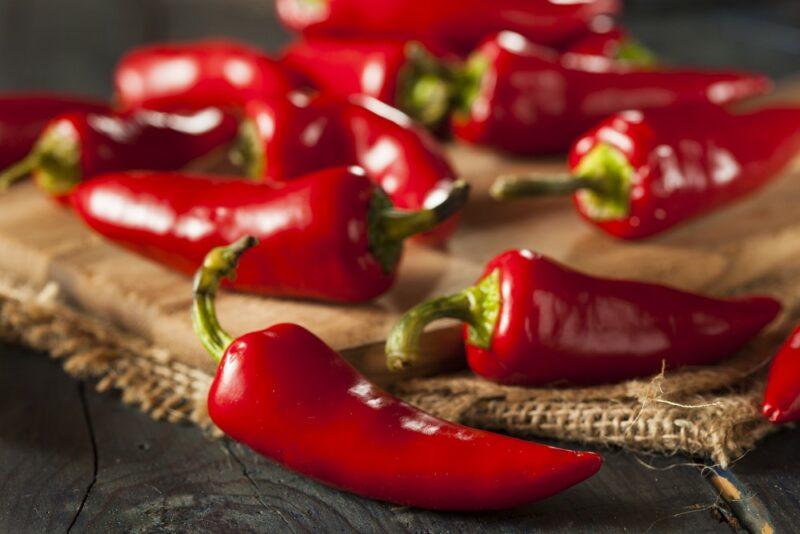
It Might Help You Live Longer
Spicy food doesn’t just make your day more interesting, it could even help to extend your life. This information comes from a 2015 study that dietary patterns across China. The authors found that eating spicy food 6 or 7 times a week was linked to a lower risk of death.
The effect was stronger for people who don’t consume alcohol although, thankfully, even those drinking alcohol still saw some reduction in risk of death.
Can Speed Up Your Metabolism
Studies have linked some individual spices to increases in metabolic rate and a sense of satiety. Both effects are helpful for weight loss, as the metabolism increase can help you to burn energy faster, while the satiety can decrease your cravings for food.
You may have noticed this one yourself. For example, if you have hot sauce with your appetizers, you might eat a little less during your meal than you would otherwise.
The metabolism effect comes from the compound capsaicin, which is found in hot peppers. This is what provides the heat, so you’ll find it in most spicy meals. This should also mean that the metabolism increase is more significant for very spicy food compared to food with just a little spice.
Let’s be clear though, the effects here are small. The New York Times suggests that a spicy meal increases your metabolism by 8% or so from your resting rate, which isn’t as dramatic as it sounds.
The exact percentage will vary depending on the spiciness of the food, the rest of your meal, and your body. Even so, the metabolism increase will remain low for most people.
This means that simply eating spicier food won’t be enough to make you suddenly start dropping pounds. Still, small effects like this add up, so spicy foods might just make your weight loss journey just a little bit easier. One study even promoted this idea for obese youth.
Could Reduce Inflammation
Some spices have been linked to reduced inflammation too.
Inflammation itself is a natural process. It’s part of how our body responds to infection or injury. However, chronic inflammation can be more harmful than helpful, and may even increase the risk of some diseases.
The compound curcumin is the most common example. This is prevalent in turmeric and is one reason that turmeric is so powerful. While turmeric itself isn’t particularly spicy, some recipes that use turmeric also use spicy ingredients.
The capsaicinoids in hot peppers are also relevant for inflammation. Thankfully, you don’t need to use a large amount to see the anti-inflammatory benefits.
Plus, you’ll often be using spicy peppers in the same foods as other inflammation-reducing ingredients. That just helps to increase the benefits, giving you much more out of a single meal.
May Help With Pain
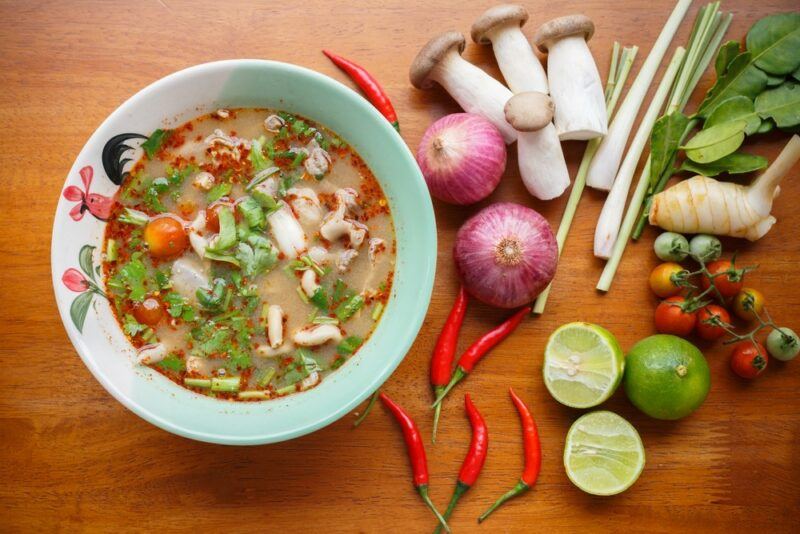
The capsaicin in spicy food can help to decrease pain too. In fact, eating spicy food regularly could decrease pain thresholds. That could be a powerful effect for anyone living with chronic pain.
The inflammation effect is one logical reason for how spicy food affects pain, but there may be others too. For example, some researchers have found an interesting interaction between pain and heat sensations, which reinforces the idea that spicy foods have some effect on pain levels.
Spicy Foods Are Nutritious
This might sound boring, but don’t forget that spicy foods all offer plenty of nutrients, plant-based compounds, and antioxidants. These components can all help to promote health.
We’re not just talking about the nutrients in the spicy ingredients themselves. We’re also talking about entire meals.
After all, you’re normally combining spicy foods with other ingredients to create a rich and delicious meal. Such meals are likely to rely on spices like cinnamon, turmeric, or paprika, plenty of vegetables, some legumes, or perhaps meat.
Can Be Perfect If You Have A Cold
Hot foods have multiple benefits when you are sick. They can help you to sweat, open up your airways, and make it easier to cough up mucus. These features are all powerful when you’re under the weather.
Plus, many people find their sense of taste decreases when they have a cold or the flu. Spicy food is helpful here too, as the spiciness is still distinct, even if you can’t taste much else.
Can Be Surprisingly Good For Your Stomach
When people end up with an ulcer, they often blame spicy food. That’s a shame, as there’s no evidence for the effect. In fact, the capsaicin in chili peppers may work in the opposite way, helping to decrease acid in the stomach and lower the risk of ulcers.
Ulcers tend to be caused by other things instead, including stress, excessive use of NSAIDs like ibuprofen, or an infection.
Spicy food may also have other positive effects on your stomach and digestion too. For example, the capsaicin in chili peppers actually helps to decrease irritation. Spicy foods also stimulate saliva production, which helps with your digestion.
May Have Other Benefits Too
Spices are potent sources of plant-based compounds. These can have a variety of effects, including the potential to decrease oxidation, to fight inflammation, and to combat harmful bacteria.
Some of these compounds, like the capsaicin in chili peppers and curcumin in turmeric have been studied in detail, while others haven’t been studied much at all. And honestly, even for the compounds that have been studied in-depth, there’s still much that we don’t know.
These patterns mean that spicy foods might help in more ways than we imagine. Some of those antioxidants, for example, might significantly decrease disease risk. Others might lower pain associated with inflammatory conditions.
Early studies suggest some benefits, like the potential for some spicy foods to decrease cancer risk or to lower blood cholesterol levels. If nothing else, we know that spicy foods are an easy way to enjoy a variety of spices and other healthy ingredients.
When Spice Isn’t A Good Idea
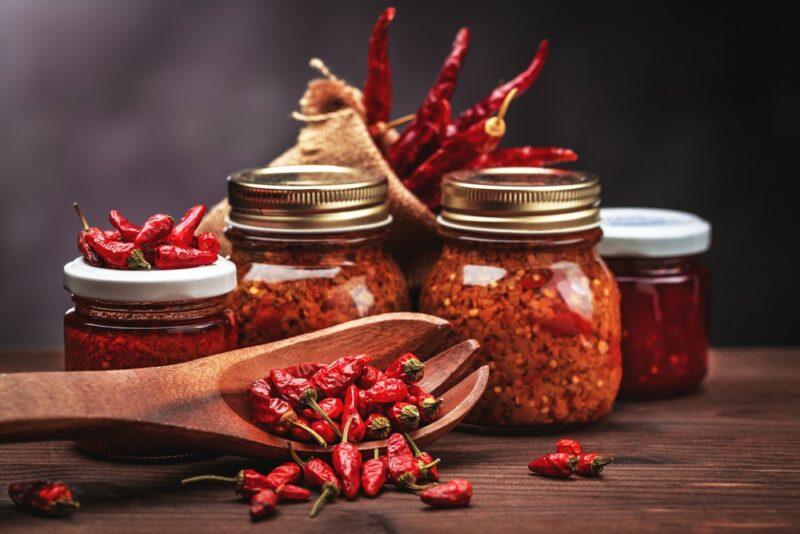
You’ve probably heard the opposite perspective too – that spicy food is dangerous. Some of those claims are simply an old wife’s tale, perhaps based on the sensations that come with the spicy food and the idea that the food must be burning a hole in your insides.
Yet, there’s no evidence for most of the concerns about spicy food. The spiciness certainly isn’t dangerous – plenty of cultures eat spicy foods regularly and have done so for hundreds of years.
That being said, spicy food isn’t always the best choice.
Spicy Food Can Cause Side Effects
While spicy food is safe and may even offer benefits, some people regularly experience side effects. Heartburn is a common issue, where stomach acid comes back up your esophagus, causing a burning sensation. It isn’t a pleasant sensation at all and it’s one that most of us would love to avoid.
Now, spicy food certainly isn’t the only thing that can cause heartburn (and many people don’t experience this issue with spicy food at all). Even so, if you are sensitive to heartburn, spicy food could make things worse.
There’s also a laxative effect, which happens because of irritation to your stomach or intestine. The effect can be sudden and you might end up with this and nausea in some cases. Another issue is acute gastritis, which combines the most unpleasant gastric symptoms all at once.
Thankfully, these side effects don’t tend to last for a long time and shouldn’t cause long-term harm. Still, if you’re seeing them regularly, take the side effects as a sign that you should cut down on the spice you’re using – or perhaps even cut out the spicy foods entirely.
May Interact With Medications
The compounds in your food can interact with medications in countless ways. Two of the most famous examples are how the vitamin K in leafy greens interacts with anticoagulant medications like warfarin or how grapefruit affects the function of statins.
Much less is known about the interaction between the compounds in spicy foods and medication. But, this doesn’t mean that spicy foods are always safe. Instead, you should always talk to your doctor about possible interactions.
Pay attention to your own body too. This is crucial, as research studies focus on averages rather than individual experience. They can never cover everything anyway.
The Side Effects May Affect Sleep
Even when the side effects of spicy foods are subtle, they’re often strong enough to make sleep more difficult. This can be a particular issue if you struggle to get to sleep anyway.
Plus, lying down tends to make digestive discomfort much worse. So, if you love spicy food, try eating it for lunch, rather than at dinner time. This way you get to enjoy it, without any impact on your sleep.
How Much Spice Is Too Much?
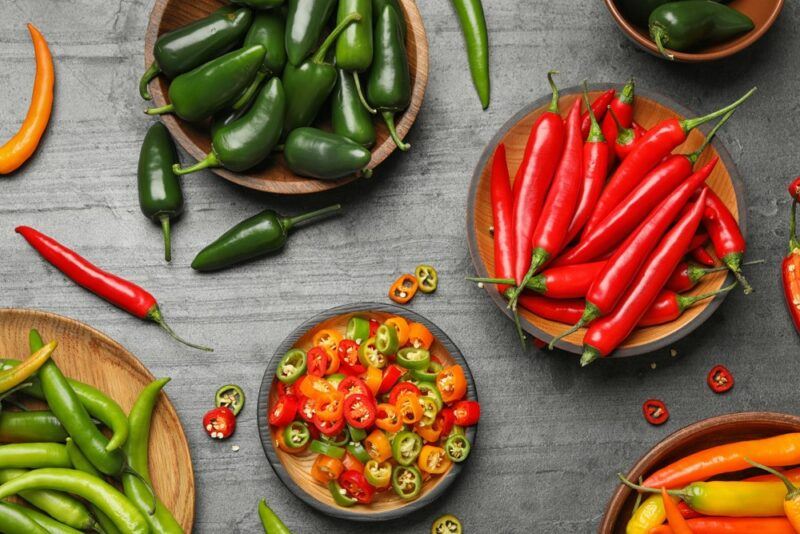
Research doesn’t offer many answers for how much spicy food is helpful versus harmful. The question is a tough one to answer anyway, as the same quantity of spice may taste different and have varied impacts depending on the meal that you’re including it in.
The effects of spice may also be different from one person to the next, which complicates matters further.
In the end, you’ll need to experiment for yourself. Pay attention to how you feel after different types of meals and different levels of spice.
It’s also best to make sure that some of your meals aren’t spicy. You’ll don’t need to make every meal spicy to see benefits from the spices – and it might be helpful to give your body a break regularly. Doing so may help you to avoid side effects too.
Will Spicy Foods Really Help You?
At the end of the day, no single food is going to revolutionize your health. Instead, having a well-balanced diet that includes plenty of nutrients is much more powerful than any individual food.
That point is important, as the benefits of spicy foods might make you want to rush out and add lots of spice to all your foods. But, while spicy foods are certainly good for you, it’s also clear that they aren’t a good choice for everyone.
The best approach is to pay attention to your body. If eating spicy food regularly makes you feel nauseous and leads to acid reflux, then you might need to cut down on the spice. But, if you feel good after eating spicy food, then it is probably a safe choice for you, one that might even offer health benefits.
Frequently Asked Questions
Is Spicy Food Good For A Cold?
Spicy foods won’t do much for your cold itself and certainly won’t help you recover faster. However, such foods may temporarily help with some of your symptoms, like clearing your sinuses.
That said, it’s important to be cautious, as spicy foods can also cause some uncomfortable symptoms, like stomach pain and nausea. If you get side effects like these, spicy food could be a poor choice while you’re sick.
Can Spicy Food Cause Ulcers?
Spicy food is famously associated with stomach ulcers, but this effect doesn’t seem to be real. Spicy foods might even decrease your risk of ulcers instead by cutting down your amount of stomach acid.
Does Spicy Food Help You Lose Weight?
Spicy food does have some positive effects here, as it helps you to feel more satisfied and can slightly boost your metabolism. Neither effect is going to dramatically impact your weight. But, spicy foods could still be useful if you’re following other weight loss practices as well.
Does Spicy Food Affect Breast Milk?
Many mothers avoid spicy foods while breastfeeding out of concern that the spice harms the baby or makes them fussier. Eating spicy food does indeed affect your breast milk, as the spicy compound piperine can be detected in the milk hours after consumption.
However, research shows that this effect does not cause any harm, making spicy foods completely safe for breastfeeding women.
Does Spicy Food Induce Labor?
Spicy food is famously promoted as a way to induce labor, partly because it can cause gut irritation, which might then lead to uterine contractions. However, there’s no evidence that this effect actually induces labor and most women won’t experience any change from eating spicy food.






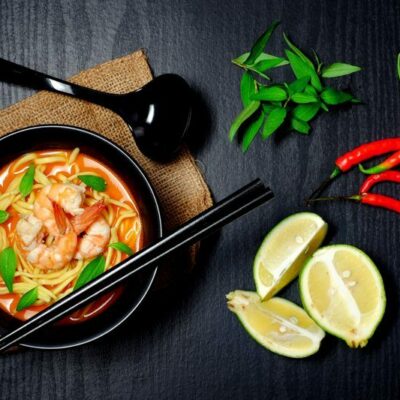


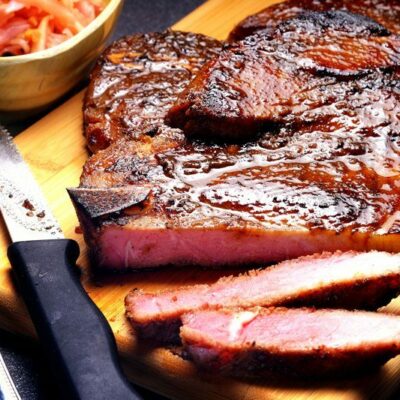
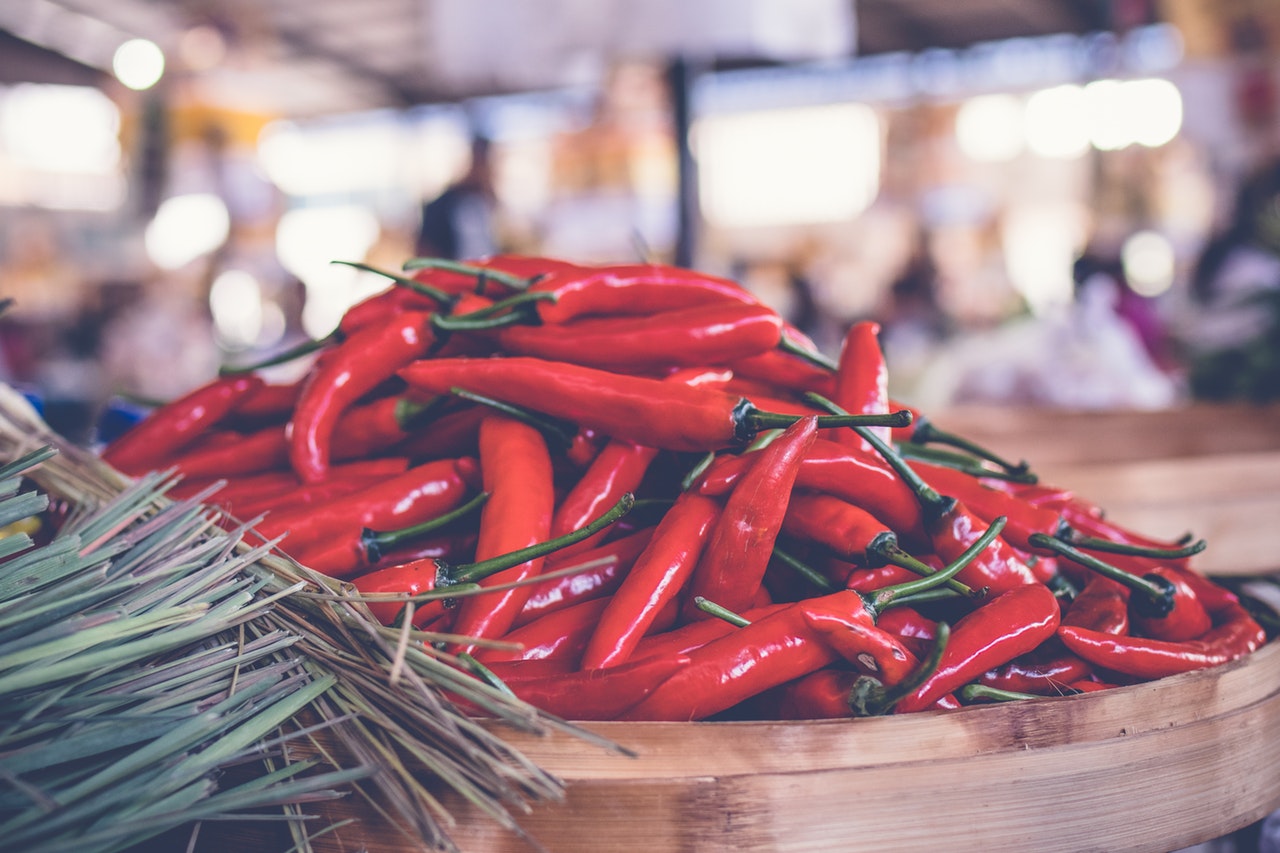




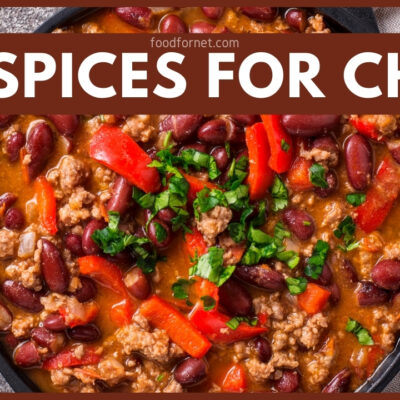

 Is Collagen Good For You?
Is Collagen Good For You?
Leave a Reply